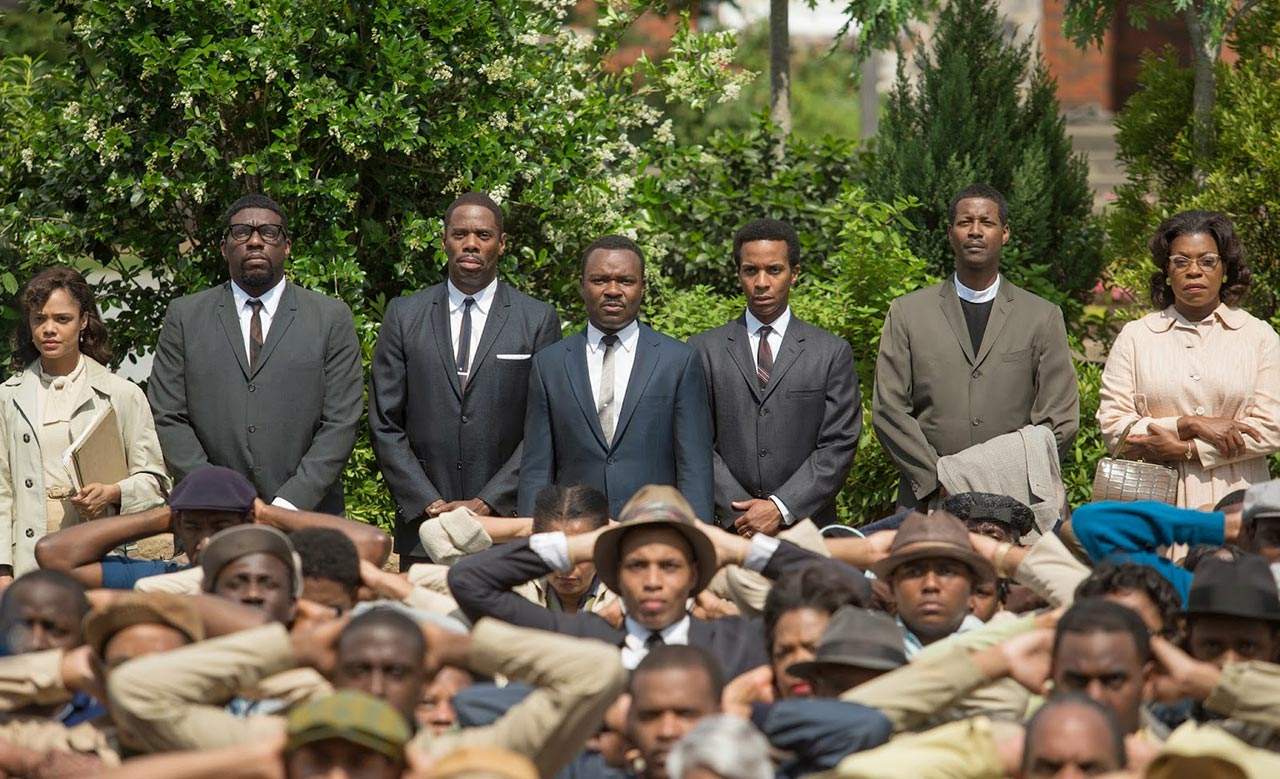Selma
With the events of Ferguson so fresh in our memories, Selma is uncomfortable yet necessary viewing.
Overview
Biopics remain very much the projects of choice for studios in 2015, subject to one clear, discernible shift. Rather than centring on the individual’s most notable achievement or moment of infamy, this current crop of films shines the light on the protagonist’s lesser known, more intimate details: the formative years or the family unit. Their subject’s fame is taken as read, serving largely as a mere precursor to, or consequence of, the film’s actual content.
In this vein, Selma is a Martin Luther King story that eschews the ‘I have a dream’ speech and begins instead with his acceptance of the 1964 Nobel Peace Prize that resulted, at least in part, because of it. The film’s name, Selma, refers to a town in Alabama from which Dr King organised a series of marches to protest the denial of constitutionally protected voting rights for African-Americans.
Segregation was, by 1965, illegal, yet in practice still found ample avenues of application in the southern states, as well as many willing supporters to maintain it — most notably the politicians, police and government officials. With a compassionate yet unenthusiastic White House refusing to back new voting rights legislation, King and his supporters drew a line in the sand and selected Selma as the staging ground for protest. What followed were beatings, shootings and even murders perpetrated by whites — both civilian and official — who seldom faced arrest and never once saw conviction.
It all makes for very uncomfortable yet necessary viewing. Selma fills you with an anger borne not only of the injustices depicted but of the knowledge that more than half a century later they remain far from resolved. It’s impossible not to draw comparisons with Ferguson, and in that sense Selma is as timely as it is challenging.
The standout is, of course, David Oyelowo in the lead role. His recent run of films — including The Butler, Lincoln and Red Tails — have all explored racial discrimination, yet it’s in Selma where the intolerance feels most raw, the inequity most glaring. With a near-flawless accent and remarkable physical similarity, Oyelowo magnificently captures King's extraordinary patience, discipline and eloquence. The civil rights leader's command of the language that in turn facilitated command over the thousands who flocked to hear him speak flows beautifully from this accomplished actor’s lips — each line a glowing tribute to the rhetoric that galvanised supporters and tormented presidents.
Supporting Oyelowo is an impressive cast that boasts Oprah Winfrey (who also executive produced the picture), Tom Wilkinson, Tim Roth and Carmen Ejogo as King’s stoic wife Coretta. It's an accomplished and confronting film with division at its heart, though not just between races. Internal squabbling among competing civil rights groups, political differences between state and federal leaders, the struggles within King’s family and even his own personal doubts all receive attention — a myriad of complexities and obstacles reminding us that sometimes ‘black and white issues’ are in fact the most ambiguous and impenetrable of all.





